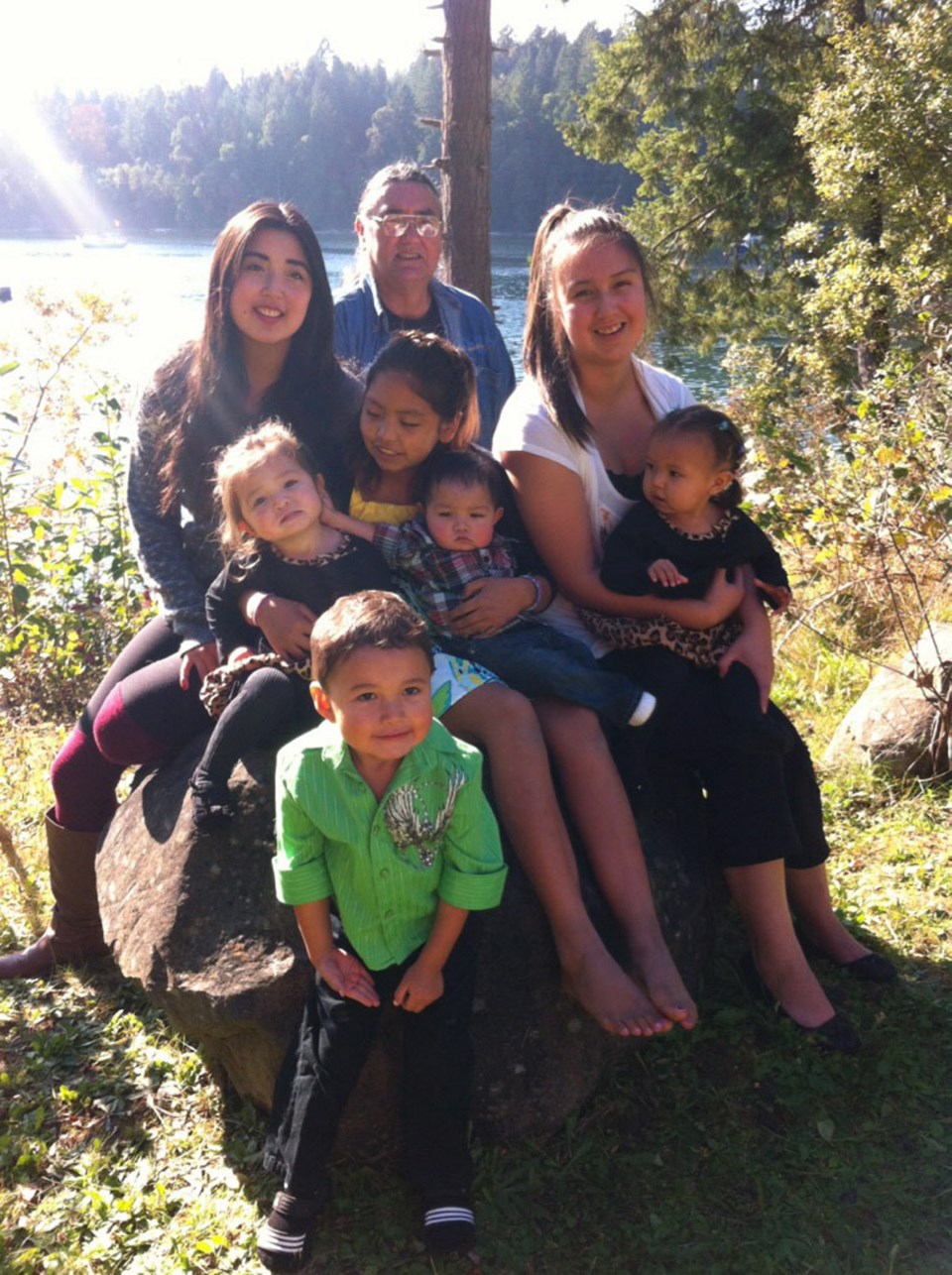Update:
Richard Jerman is scheduled to go before a detention review hearing with immigration officials at the Immigration and Refugee Board of Canada in Vancouver at 2 p.m.
Jerman’s lawyer and supporters are fighting to keep the father and grandfather in the country. If officials decide upon a removal order, Green leader MP Elizabeth May said she will ask Canada’s Public Safety Minister Steven Blaney to intervene.
“If there is any justice or common sense or compassion in this world they would say ‘why did even go nab this guy away from his family?’” May said. “He’s not a public security threat. He’s lived quietly, and peaceably, and he’s been a major healing force in the community and the community garden where the residential school used to be.
“What has transpired on that island to those people of Penelakut Island — the intergenerational grief and pain and injustice — and now this happening to that family is just unbelievable,” May said.
- - - - - - - - - - -
Original story:
A U.S.-born father and grandfather was whisked away from his home on Penelakut Island Wednesday by Canada Border Services Agency officials — a move that has left his family and community baffled and angry.
Richard Jerman, 60, who has four children and 14 grandchildren, is being held in custody awaiting a hearing with immigration officials today, his family said.
Jerman was picked up as he worked on a farm on the First Nations reserve on Penelakut Island, about five kilometres from Chemainus. He has lived on the southern Gulf Island, formerly called Kuper Island, for 37 years.
Without notice, Jerman was taken from the home he shares with his wife, Maria George, and given just enough time to collect his clothes before being transported to a jail in Victoria, family said.
His wife and two daughters raced to Vancouver’s Immigration and Refugee Board on Thursday but upon arriving were told Jerman would be in B.C.’s immigration holding facility at Vancouver airport overnight and to return Friday.
“It’s not right for white people coming over and just taking people like that,” said George, 65. “I want them to release him. He doesn’t have a criminal record. He’s the only one that helps us out. He does everything for us and the community and helps the elders.”
Jerman was born to a Miwok Indian father from California and Mexican mother, family said. His mother died when he was three years old and he was raised by a foster family. It was not a good experience and he has no contact with them.
At age 23, Jerman met George in Seattle. The couple returned to her home on the First Nations reserve of about 300 people.
Under the Constitution Act and the United Nations Declaration on the Rights of Indigenous Peoples, First Nations have rights to travel and trade freely across the Canada-U.S. border, according to the Assembly of First Nations.
However, Jerman has no Indian status nor does he have Canadian residency or citizenship, his family said.
“No one saw this coming,” said Penelakut tribe administrator Ruth Sauder. “It’s completely out of the blue and no one knows what to make of it. He’s quite a private citizen. He’s not a high-profile person.”
Canada Border Services Agency tracks down and removes foreign nationals who are in Canada illegally. An agency spokeswoman said in an email Thursday that in accordance with the Access to Information and Privacy Act, it does not speak on specific cases.
“We can tell you the CBSA is responsible for enforcing the Immigration and Refugee Protection Act and works to detect and apprehend individuals who do not have the authority to be in Canada,” said spokeswoman Stefanie Wudel.
Sauder said the Jerman and George families will be lost without the grandfather, father and husband, and that he’d be lost and penniless if deported to the United States with no family or network there.
Deportation would make no sense, she said.
Green Party Leader Elizabeth May criticized the government’s heavy-handed approach.
“Most Canadians would be shocked that our government could treat anyone in such an inhumane way, and with such a profound lack of compassion,” May said.
“We must demand better than this administration’s mean-spirited approach to vulnerable people in situations like that faced by Mr. Jerman.”
The Saanich-Gulf Islands MP called on Citizenship and Immigration Minister Chris Alexander to intervene to remedy Jerman’s status as a naturalized Canadian.
In a recent comprehensive community planning exercise, Jerman proposed that the Island become a dry community — drug- and alcohol-free. He suggested it as a way to help improve the health of the community, especially the youth, Sauder said.
Loretta Sue George, 31, said her mother called Thursday sobbing that Border Services officials were taking away her father.
She arrived to see him leaving.
“My mom and I were crying,” Loretta Sue George said. “He didn’t know what was going to happen. … He was just shocked and upset.”
Maria George was reminded of the day she was torn from her grandmother’s arms to the island’s residential school run by the Catholic Church.
“They took me … and my family weren’t allowed to see me at all … and then they come to do this to us now, with him,” George said.



